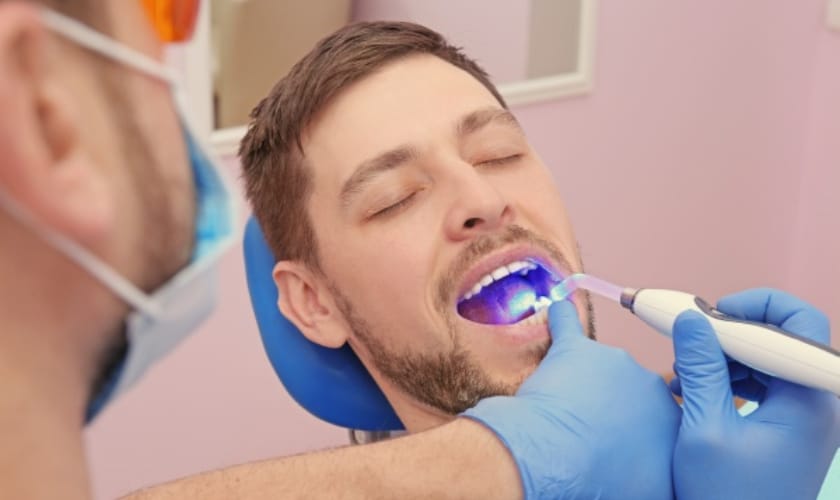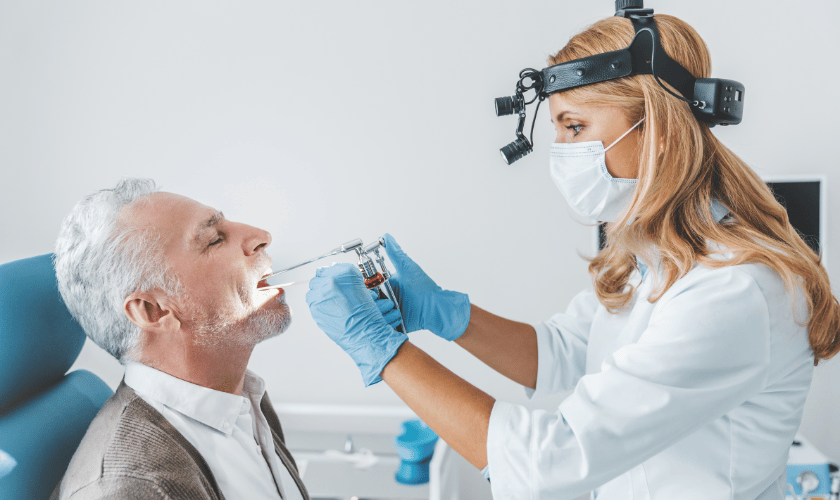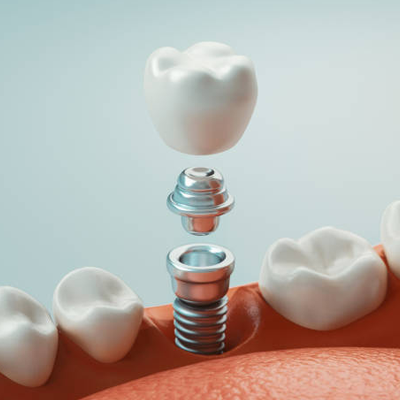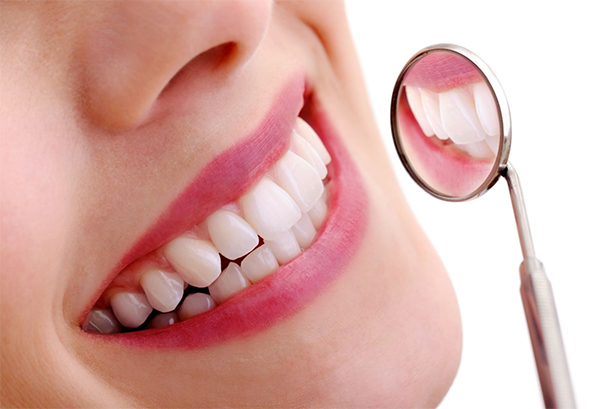
Understanding the Benefits of Oral Cancer Screening for Smokers and Tobacco Users
Attention all smokers and tobacco users! Have you ever thought about the long-term effects of your habit on your oral health? As unsettling as it may be, smoking and tobacco use has been linked to an increased risk of developing oral cancer. However, the good news is that early detection through regular screenings can significantly increase survival rates. In this blog post, we will explore the benefits of oral cancer screening for smokers and tobacco users so that you can take control of your health and well-being.
Introduction to Oral Cancer Screening
Oral cancer screening is an important tool for tobacco users and smokers to detect early signs of cancer. Many people who use tobacco products or smoke are unaware of the risks associated with oral cancer. Screening for oral cancer can help save lives by detecting cancer early when it is most treatable.
Tobacco use is the leading cause of preventable death in the United States. Cigarette smoking alone causes more than 480,000 deaths each year, including nearly 42,000 deaths from oral cancer. People who use tobacco products or smoke are at an increased risk of developing oral cancer.
Early detection of oral cancer is critical to successful treatment. When caught early, oral cancer has a survival rate of 83%. However, the five-year survival rate drops to only 58% when the disease is found at a later stage.
Oral cancer screenings are quick and easy. During an oral cancer screening, a dentist or hygienist will look for any changes in your mouth, tongue, lips, and throat that could be signs of cancer. The American Dental Association (ADA) recommends that all adults over the age of 18 should have an oral cancer screening at least once every three years.
If you use tobacco products or smoke cigarettes, it’s important to get regular oral cancer screenings. Talk to your dentist about how often you should be screened based on your individual risk factors.
Risk Factors for Oral Cancer
Oral cancer is a serious disease that can be difficult to detect in its early stages. People who use tobacco products or who have a history of smoking are at an increased risk of developing oral cancer. That’s why it’s important for smokers and tobacco users to get regular oral cancer screenings from their dentist or primary care provider.
Oral cancer screenings are quick and easy, and they can help catch the disease in its early stages when it’s most treatable. If you’re a smoker or tobacco user, talk to your dentist or primary care provider about getting an oral cancer screening at your next appointment.
Symptoms of Oral Cancer
There are many symptoms of oral cancer, but the most common symptom is a sore or irritation that does not go away. Other symptoms include:
-A lump or mass in the mouth, throat, or neck
-Difficulty swallowing or chewing
-Numbness in the mouth or tongue
-Swelling in the jaw
-Bleeding from the mouth or gums
-Loose teeth or dentures that don’t fit properly anymore
Benefits of Oral Cancer Screening
Oral cancer is a serious disease that can be deadly if not detected and treated early. While most people are aware of the dangers of smoking and tobacco use, many do not realize that these habits also increase the risk of oral cancer. That’s why it’s so important for smokers and tobacco users to get regular oral cancer screenings.
During an oral cancer screening, a dentist or doctor will examine your mouth, tongue, and throat for signs of cancer. This exam is quick and easy, and it could save your life. Early detection is key when it comes to treating oral cancer, so don’t wait to get screened.
If you are a smoker or tobacco user, talk to your dentist about getting an oral cancer screening at your next appointment. It could be the most important dental appointment you ever have.
How Does it Work?
There are many ways that smokers and tobacco users can get screened for oral cancer. One way is to go to the dentist for a regular check-up and cleaning. The dentist will look for any signs of trouble, such as red or white patches, sores, or lumps. If the dentist sees anything suspicious, they may refer the patient to an oral surgeon or ENT (ear, nose, and throat) doctor for further evaluation.
Another way to screen for oral cancer is through self-examination. This can be done by using a mirror to look inside your mouth for any unusual changes. It is important to know what your mouth looks like so you can spot any changes quickly. If you see anything that looks different or feels different, make an appointment with your dentist or doctor right away.
There are also at-home screening tests available that can be purchased online or at some pharmacies. These test kits usually involve swabbing the inside of your cheek with a cotton swab and then sending the swab off to a lab for analysis.
Who Should Get Tested?
If you are a smoker or use tobacco in any form, you should get tested for oral cancer. Oral cancer is one of the most common cancers in the United States, and smokers and tobacco users are at a higher risk of developing the disease. While oral cancer is more common in older adults, anyone can get it, so it’s important to get screened if you’re at risk.
What to Expect During the Screening Process
If you’re a smoker or tobacco user, you may be wondering what to expect during an oral cancer screening. Here’s a brief overview of the process:
First, your dentist or doctor will visually inspect your mouth for any signs of cancerous lesions or other abnormalities. They may use a bright light and magnifying glass to get a closer look.
Next, they’ll feel around your neck and jaw for any lumps or swellings that could indicate a tumor.
Finally, they may use a small brush to collect cells from inside your cheek for testing. This is usually quick and painless.
If anything suspicious is found during the screening, you may need to undergo further testing to confirm whether or not you have cancer. However, most people who get screened do not have cancer. So try not to worry too much and just focus on following your dentist’s or doctor’s instructions.
What Are the Results?
If you’re a smoker or tobacco user, you’re at increased risk for developing oral cancer. While the best way to reduce your risk is to quit smoking or using tobacco products, regular oral cancer screenings can also help.
During an oral cancer screening, your dentist or doctor will examine your mouth for signs of cancer. They may use a bright light and magnifying glass, and they may feel around your neck for any lumps or swellings.
If anything suspicious is found, further testing will be needed to confirm whether or not it’s cancer. These tests may include a biopsy, in which a small sample of tissue is taken from the suspicious area and examined under a microscope.
Oral cancer screenings are important because they can help find cancer early, when it’s most likely to be curable. If you’re a smoker or tobacco user, be sure to schedule regular screenings with your dentist or doctor.
Treatment Options for Oral Cancer Patients
There are a variety of treatment options available for oral cancer patients, depending on the stage and severity of the disease. Treatment typically begins with a biopsy to confirm the diagnosis, followed by surgery to remove the cancerous tissue. In some cases, radiation therapy or chemotherapy may be necessary to kill any remaining cancer cells.
The earlier oral cancer is caught, the better the chances of successful treatment. That’s why it’s so important for smokers and tobacco users to get regular oral cancer screenings. If you are at high risk for oral cancer, talk to your dentist or doctor about how often you should be screened.
Conclusion
Oral cancer screening is an important part of maintaining oral health for smokers and other tobacco users. Regular screenings can help to detect any signs of oral cancer at its earliest stages, allowing for timely treatment that is more likely to be successful. If you are a smoker or frequent user of tobacco products, talk to your dentist about scheduling regular screenings so that you can take the necessary steps toward protecting your oral health.
An oral cancer screening is a simple test that can help detect early signs of the disease. A trained professional will examine your mouth and throat for any abnormalities.
If you are a smoker or tobacco user, it is recommended that you get an oral cancer screening at least once a year. However, if you have any concerns or symptoms, you should see a doctor right away.








